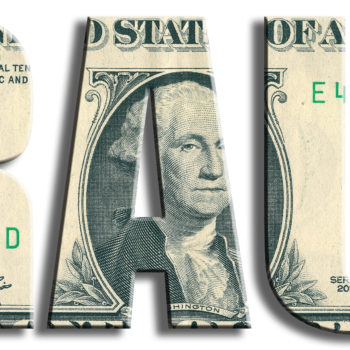What happened to a portion of the funds that were supposed to go into improving Hartsfield-Jackson Atlanta International Airport? It is a question that the Federal Aviation Administration would like to have answered. Possibly, funds diverted to pay-off lawyers?
At first, the FAA probe and city corruption seem unrelated, but taking a deeper look has revealed some troubling results. One thing that is known for certain is that Atlanta’s legal bills relating to a corruption investigation are exceeding $7.5 million.
On June 28, 2018, the Atlanta Journal-Constitution reported on the high legal fees relating to the federal corruption probe of former Mayor Kasim Reed. The “high-powered” law firms charged the city $5.8 million and then they were put on another case, the contentious firing of the former airport general manager Miguel Southwell. That probe cost the city another $1.7 million.
Here is where the city corruption probes net up with the airport. According to the article:
“Some money that funded at least two law firms came from federally regulated airport funds.”
The “joke,” though it is hardly funny, is that the city council did not even know about the lawyers.
“The council did not even know that any of this outside counsel activity was going on,” said City Council President Felicia Moore, who served as a council member during Reed’s administration. “We didn’t know to ask.”
Nor did the city council realize that three outside law firms, charging up to $900 per hour were working on the probe. We cannot dwell too long on the argument as to whether or not the city saved money by hiring outside law firms rather than hiring internally, but common sense might dictate that if the city could not afford the costs, why did it feel empowered to divert funds?
The Airport as Political Football
We are not treading on the uncharted territory by stating that Hartsfield-Jackson Atlanta International Airport is among the most dreaded airports in the world.
In regard to Southwell’s firing, it was asserted that his firing was due to the excruciatingly long lines at the airport. However, the mayor’s office allegedly charged that “Southwell resisted pressure from the mayor’s office to award airport contracts to companies that were not the lowest bidders.” It is ironic that in the City of Atlanta, it always seems to somehow come around to the airport.
Whether Southwell was guilty or not, the legal probe ultimately determined that neither he nor the mayor were at fault. It was one of those deals where there was a termination by mutual agreement. The fees for that amounted to $1.7 million.
Apparently, no one on the city council was aware of those fees either. Some people feel the high legal fees were to protect Mayor Reed from prosecution, while others point to some of the vendors. In either case, when the bills came due someone in city government had to think of creative ways to pay for them.
Someone must have eyed the FAA funds given to the city to help fix the problems at the airport. “Someone” must have figured no one would care. The FAA does.
Back to the FAA
The FAA specifically prohibits the use of airport revenue for expenses unrelated to airports’ operations and capital expenses. This is completely logical and ethical. It is remotely possible the FAA would allow the legal expenses in pursuit of Southwell’s guilt or innocence, but not of an unrelated corruption charge.
According to the Atlanta Constitution article:
“Barbara Lichman, an aviation lawyer in southern California, said if the firms were paid from airport funds for legal services unrelated to the airport she believed the payments would meet the definition of revenue diversion. ‘You’re not allowed to take money from the airport off the airport,’ she said. ‘By paying for other city departments you’re taking money off the airport.’”
Meanwhile, the FAA is not taking any decisive action until the entire matter is investigated:
“The Federal Aviation Administration will not make a determination regarding any possible impacts to Airport Improvement Program (AIP) funds for Hartsfield-Jackson Atlanta International Airport until our investigation is completed,” said Arlene Salac, an FAA spokeswoman.
The Rationalization of City Officials
There is a predictable disconnect in airline travel. We can travel through an airport, such as Hartsfield-Jackson Atlanta International Airport, America’s busiest airport and say “I’m in Atlanta.” We may, in fact, “kind of” know we’re in a suburb of Atlanta (actually an unincorporated juncture of three counties), but we often don’t know the facilities are part of Atlanta’s responsibility.
The FAA expects that Atlanta will use the revenues generated from many aspects of the airport’s operation to maintain and improve the airport itself. Should a greedy politician or bureaucrat decide to use the money in the airport coffers to pay for the city’s legal fees or to paint the mayor’s residence, it is called diversion.
The $7.3 million in exorbitant legal fees may have been paid out of funds that should have gone to reducing your long lines, or fixing restrooms or patching runways. Funds Diverted to Pay-off Lawyers, instead, they lined the pockets of three law firms.
It was unethical, a rationalization that “you” would never miss it, and arrogant to say the least.


